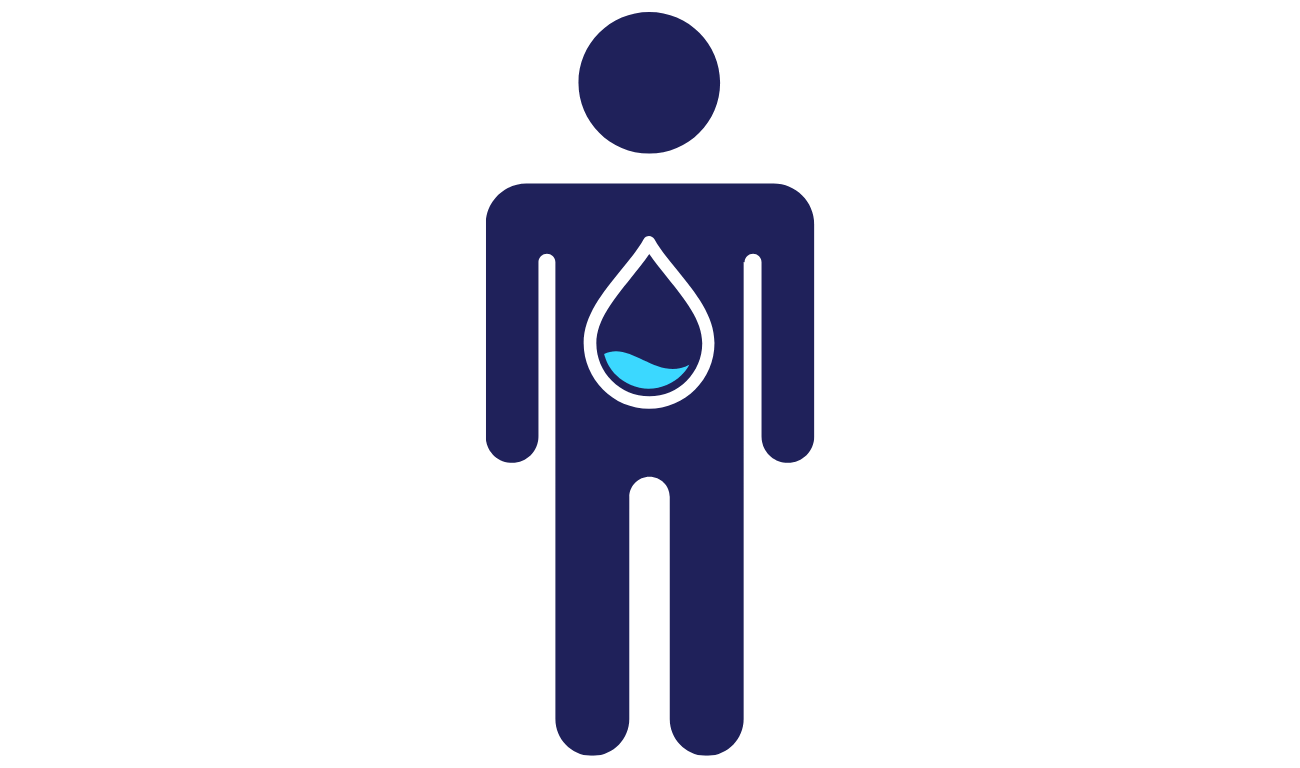Dehydration (Mild to Moderate)
Dehydration takes place when the body loses more fluids than it takes in, leading to an imbalance in the body’s water to electrolyte levels. The consequences of dehydration could impair bodily functions which is why it is important to stay hydrated, and important to know where to go when you or a loved one experiences dehydration. Our providers at PromptMed Urgent Care are equipped to handle mild to moderate dehydration and experienced in aiding their patients back to comfort and health.
How to tell if you are dehydrated
Physical signs
- Thirst: Feeling unusually thirty is an early indicator of dehydration
- Dry Mouth or Lips: A parched feeling in your mouth or dry, chapped lips
- Dark Urine: Urine that is dark yellow or amber-colored, with reduced volume, is a strong sign of dehydration
- Dry Skin: Skin that feels les elastic or looks flaky
- Headache: Dehydration can cause headaches due to reduced blood flow to the brain or electrolyte imbalances
Behavioral/Cognitive signs
- Fatigue: Feeling tired or sluggish is common with even mild hydration
- Dizziness or Lightheadedness: A drop in blood pressure due to low fluid volume can cause dizziness
- Difficulty Concentrating: Mental clarity may be reduced
- Irritability: Dehydration can affect mood and cause frustration
Signs of severe dehydration (call 911)
- Sunken Eyes: A noticeable hollowing around the eyes
- Very Dark Urine or No Urination: Urine may be extremely dark, or there may be no urination at all for 8+ hours
- Rapid Breathing and Heart Rate: The body compensates for low blood volume by increasing breathing and heart rates
- Shrunken Appearance: In infants, a sunken soft spot (fontanel) on the head
- Confusion or Disorientation: Mental fog, confusion, or difficulty focusing
- Seizures: Severe dehydration can cause electrolyte imbalances, leading to seizures
- Weak Pulse: The pulse may be weak and difficult to detect due to reduced blood volume
- Cold, Pale Extremities: Reduced blood flow to the skin and extremities to conserve water for vital organs
If you or a loved one are experiencing severe dehydration symptoms, please call 911.
Prevent Dehydration
- Limit Alcohol and Caffeine: Both can increase urine production and contribute to fluid loss
- Moderate Sodium Intake: Excessive salt can increase water retention, leading to dehydration if fluid intake isn’t sufficient
- During Exercise: Drink water before, during, and after exercise, especially in hot weather or intense physical activity. Consider sports drinks with electrolytes if exercising for long periods
- Hot or Humid Conditions: Increase fluid intake in hot or dry weather to replace water lost through sweat
- Check Color: Aim for light yellow urine as a sign of good hydration. Dark yellow or amber urine indicates dehydration
If yourself or a loved one are experiencing mild to moderate dehydration, our providers at PromptMed Urgent Care are equipped to handle your care. Walk-in, anytime. No appointment necessary.
